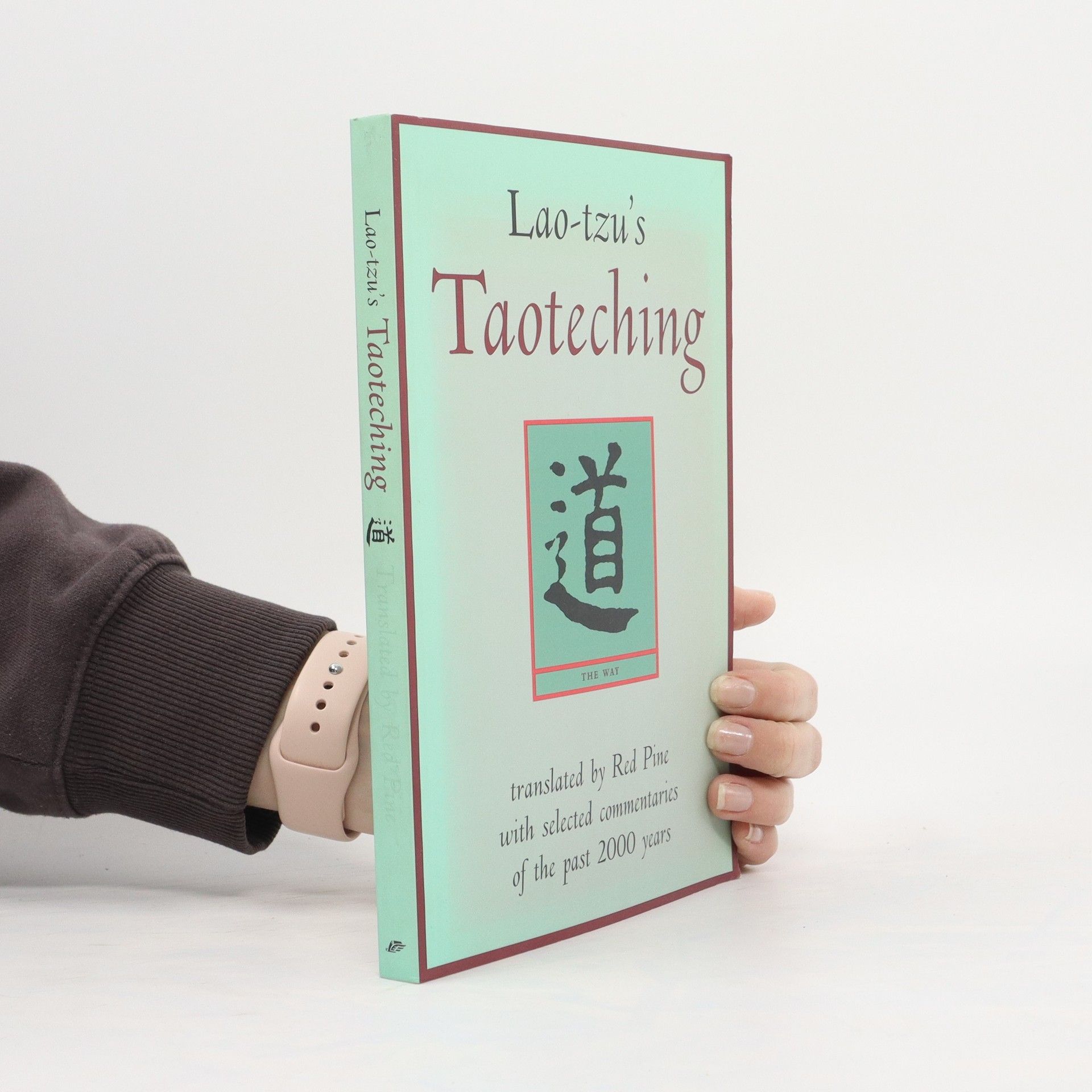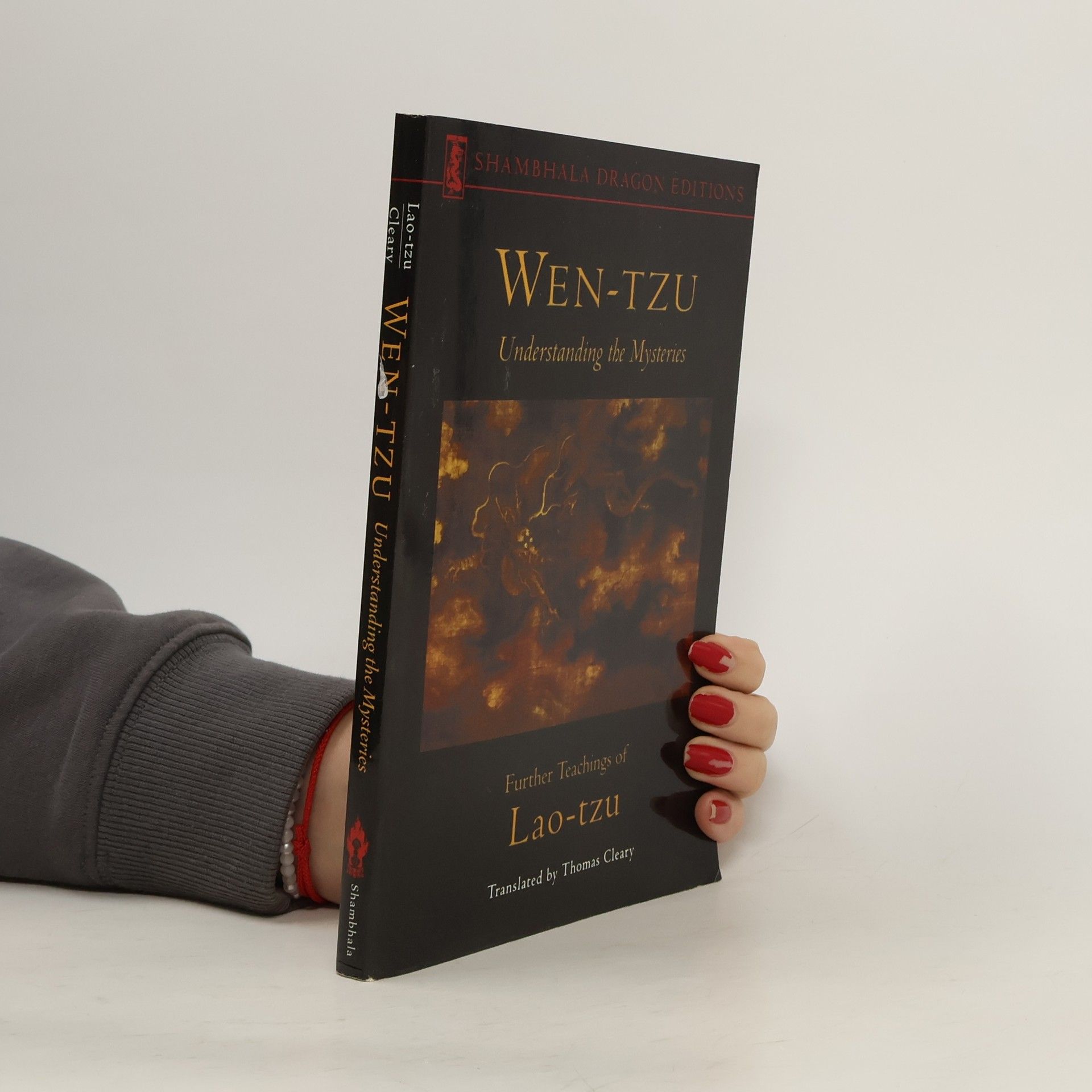Tao Te King es el libro más importante del pensamiento taoísta y la filosofía taoísta. El libro, según la leyenda, se escribió alrededor del año 600 AEC y su autor es Lao Tse, "El Viejo Maestro". El nombre de Tao Te King se puede traducir como "El libro del Camino y su Virtud". El rey de Tao Te describe una fuerza, llamada Dao (Tao), que es el orden del mundo. Es una fuerza de contradicción, y representa todas las cosas en el universo.
Laoc Libros







The Dao De Jing, also called the Tao Te Ching, was originally written in the 6th century BCE by the Chinese sage Laozi. Only 5,000 Chinese characters long, its concise and beautiful wording and its profound insights into the nature of the universe make it one of the most influential books ever written.This wonderful new book expresses the Dao De Jing in simple, contemporary language, while remaining true to the rhythms and poetic structure of the original Chinese. A key feature of this book is an innovative step-by-step translation that lets the reader not only read the English version, but to gain deeper insights from the original Chinese text even if they don't speak or read Chinese.
Lao-tzu, the legendary sage of ancient China, is traditionally considered to be the author of the Tao Te Ching, one of the most popular classics of world literature. Now Lao-tzu's further teachings on the Tao, or Way, are presented here in the first English translation of the Chinese text known as the Wen-tzu. Although previously ignored by Western scholars, the Wen-tzu has long been revered by the Chinese as one of the great classics of ancient Taoism. In it, Lao-tzu shows that the cultivation of simplicity and spontaneity is essential to both the enlightened individual and the wise leader. This timeless work will appeal to a broad audience of contemporary readers who have come to consider Lao-tzu's Tao Te Ching a classic on the art of living.
Lao-tzu's Taoteching
- 180 páginas
- 7 horas de lectura
Award-winning translator Red Pine, whose previous books from Mercury House include Road to Heaven: Encounters with Chinese Hermits and his translation of Sung Po-jen's Guide to Capturing a Plum Blossom, renders the classic Chinese text into exquisite English in a breakthrough translation that includes for the first time essential commentaries, considered by Chinese scholars to be vital to understanding the wisdom of Taoism.
The boxset features three influential spiritual texts: the Tao Te Ching, a foundational work of Eastern philosophy emphasizing simplicity and humility; The Prophet, a poignant prose poem offering wisdom on life's milestones; and The Egyptian Book of the Dead, an ancient guide for the deceased navigating the underworld. Each volume is elegantly bound in silk with gold embossing and includes full-color illustrations, making this collection a beautiful and collectible resource for those interested in ancient spiritual traditions.
Tao Te Ching (Royal Collector's Edition) (Case Laminate Hardcover with Jacket)
- 92 páginas
- 4 horas de lectura
Exploring the philosophical and religious foundations of Taoism, this ancient text presents 81 chapters that delve into the concept of 'Tao' through a poetic and paradoxical lens. Attributed to Lao Tzu, it invites readers to contemplate the essence of existence and the interplay between nature and humanity, making it a profound guide for living in harmony with the world.
This translation of a sixth-century B.C. classic from Chinese Taoism by Charles Johnston provides not only the text itself but also insightful commentary and interpretation. Johnston, known for his expertise in Eastern spiritual writings, aims to facilitate personal introspection through his work, making ancient wisdom accessible and relevant to contemporary readers.
Tao Te Ching
Esoteric Classics: Eastern Studies
The book presents a translation of a foundational sixth-century B.C. text of Chinese Taoism by renowned translator Charles Johnston. It delves into Eastern spiritual and religious themes, providing readers with insights into the philosophical underpinnings of Taoism through Johnston's adept interpretation. This work serves as a bridge to understanding ancient wisdom and its relevance in contemporary spiritual practices.
Written over 2,500 years ago, this foundational text of Taoism comprises just 5,000 Chinese characters yet conveys profound wisdom that has influenced countless individuals globally. Its teachings explore themes of harmony, balance, and the nature of existence, making it a pivotal work in world literature and spiritual thought.
